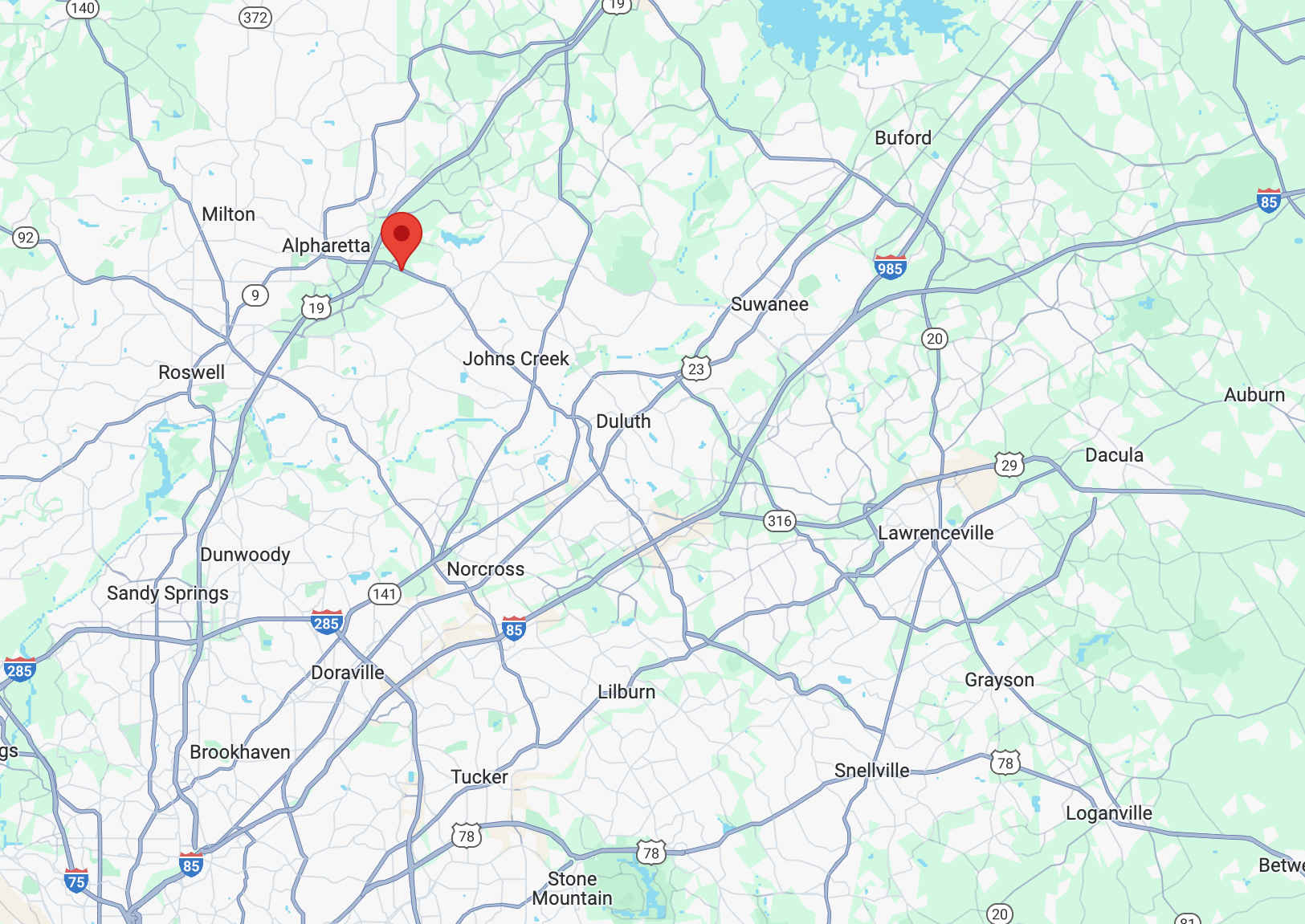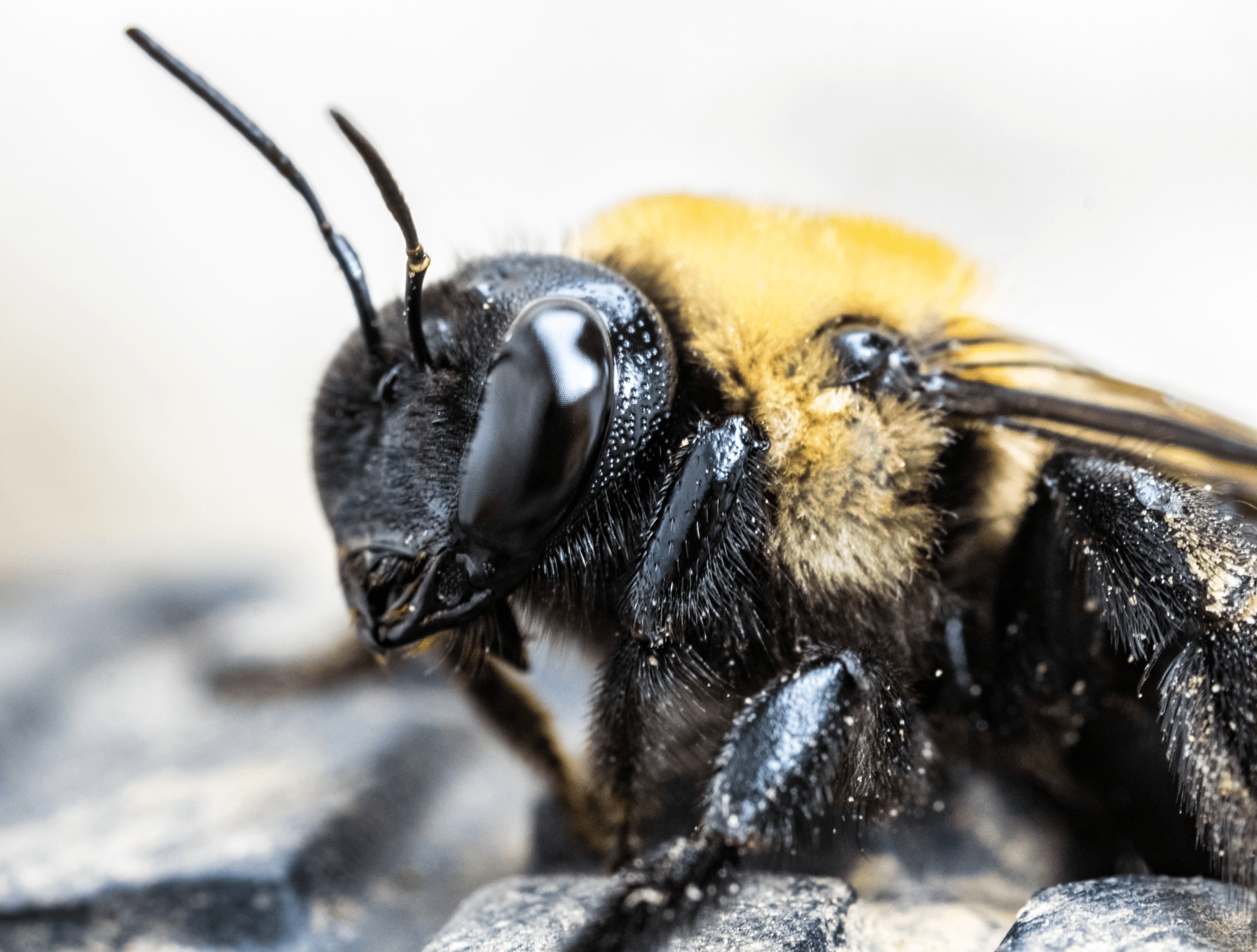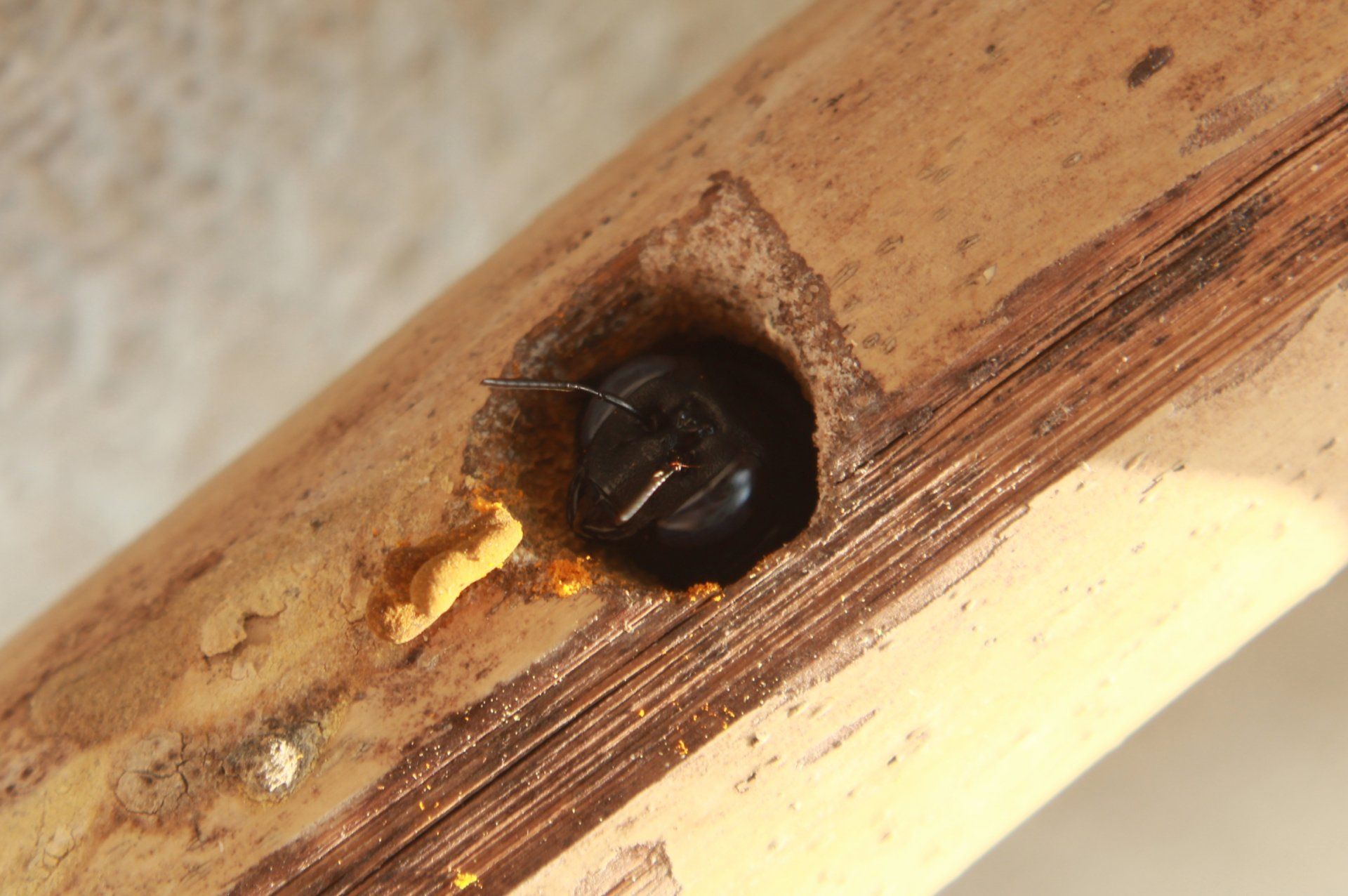Handyman Alpharetta GA: Protect Your Home from Carpenter Bees
It’s hard to get mad at these little insects, because they’re important pollinators. They’re docile as can be, and rarely sting, doing so only when forced to.
In fact, the males don’t even have stingers – although they put on a good show of buzzing intruders.
Why Carpenter Bees are so Destructive
Unlike many bees who construct their hives by attaching them to trees, under leaves or underground, carpenter bees make their homes inside wood.
They prefer untreated, raw wood to burrow into and nest, tunneling into decking, children’s swing sets, sheds, soffits, and any other wood structures near your home.
While one bee digging a small hole may not create much of an issue, when a swarm of carpenter bees begin digging holes and making tunnels, they can cause extensive damage.
When Carpenter Bees are Active Throughout the Year
At the earliest signs of spring’s arrival, you may begin to notice carpenter bee activity in Georgia.
The bees that hid for winter in boreholes will emerge and begin to look for a place to build new nests and lay their eggs.
These eggs will hatch after mid-summer and these bees will remain active all summer and into the fall.
While the Roswell and Gwinnett areas can experience some mild winters, these bees will not remain active or survive if they’re not tucked away in their tunnels.
Handyman Alpharetta GA: What Homeowners Can Do to Prevent Carpenter Bees
The number one thing homeowners can do to protect their property from carpenter bees is to paint any exposed wood like window sills, shutters, decks and play structures.
Removing old and unused wood structures from your property is another step you can take. You can also lay traps.
Lay Traps
Try luring the bees into specially designed traps. You can make a trap by attaching a pre-drilled block of wood to a glass or plastic bottle.
Looking similar to birdhouses, the bees are tricked into burrowing in the wood and then get trapped inside the bottle.
Use Insecticide
You can also dust any carpenter bee tunnels with insecticide powder.
Carpenter bees always return to their nests, so covering any drill holes with insecticide will ensure the bees ingest a fatal dose.
There’s a good chance you won’t find all of the drill holes on your own.
Spraying both the inside and outside of your home with insecticide will kill any carpenter bees in the area.
Paint
To help prevent them from returning next season, add a fresh coat of paint. Carpenter bees prefer untreated, unpainted wood.
Paint and varnish will deter the bees from drilling into your home. Pay close attention to the most vulnerable areas, such as siding, windows and decks.
Plug Holes
Plug the holes. Once you get the infestation under control, you need to block the entrances. Fill any holes with putty or caulk to force the carpenter bees elsewhere.
Wood Damage: What to do Next
Of course, getting rid of the bees won’t fix the destruction left behind.
Carpenter bee tunnels can weaken the frame over time, and water often collects in the holes, leading to wood rot.
Even their fecal matter can leave behind unsightly stains. Repairing the wood depends on the extent of the damage.
Let Us Help!
Our expert handymen have the experience and know-how to properly take care of your wood-rotting problem before it escalates.
Let us replace that rotted wood as soon as possible. We always make sure that your improvement job is a thorough one.
Need a Handyman in Alpharetta GA?
Give us a call!
We also provide handyman services for the
Lilburn,
Suwanne,
Buford,
Lawrenceville,
Duluth,
Norcross,
Stone Mountain,
Gwinnett County,
Cumming,
Roswell,
Johns Creek,
Dunwoody,
Sandy Springs,
Buckhead,
Midtown, and
Brookhaven.
If you need help with your mimi makeover or even a fullscale remodel give us a call and we would be happy to help! We’re highly experienced and guarantee all of our work.
You might also like
The Handyman Home Repair Blog
Areas We Service:
Alpharetta, Brookhaven, Buckhead, Buford, Cumming, Dacula, Doraville, Duluth, Dunwoody, Grayson, Lawrenceville, Lilburn, Lithonia, Loganville, Midtown, Norcross, Roswell, Sandy Springs, Stone Mountain, Snellville, Suwanee, and more!


Working hours
- Monday
- -
- Tuesday
- -
- Wednesday
- -
- Thursday
- -
- Friday
- -
- Saturday
- Appointment Only
- Sunday
- Closed
Handyman Services | All Rights Reserved. Website development by The Clueless Business Owner.







